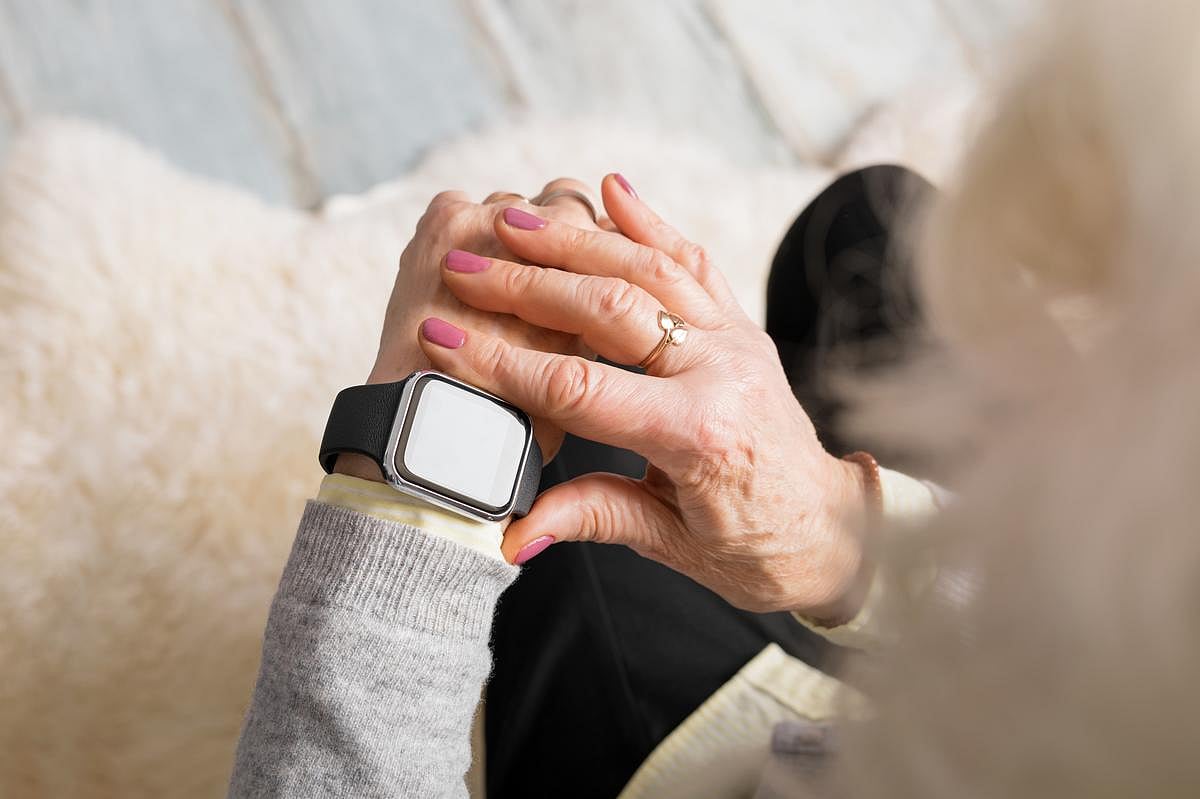Get Healthy!

- Posted November 4, 2025
AI-Powered Smartwatch Can Detect Heart Disease
Artificial intelligence (AI) can use smartwatch data to detect heart disease, a new study says.
AI fed heart sensor data from an Apple Watch accurately detected heart problems like weakened pumping ability, damaged valves or thickened heart muscle, according to findings that will be presented Nov. 7 at the American Heart Association’s annual meeting in New Orleans.
This is impressive because an Apple Watch contains only a single echocardiogram (ECG) lead, compared to the 12-lead ECG tests performed in hospitals to assess heart function, researchers noted.
“On its own, a single-lead ECG is limited,” senior researcher Dr. Rohan Khera, director of the Cardiovascular Data Science Lab at Yale School of Medicine in New Haven, Connecticut, said in a news release. “However, with AI, it becomes powerful enough to screen for important heart conditions.”
“This could make early screening for structural heart disease possible on a large scale, using devices many people already own,” Khera said.
Structural heart diseases are problems that have cropped up in the heart muscle itself, affecting its valves, walls and chambers, according to the Cleveland Clinic.
Researchers trained the AI using more than 266,000 12-lead ECG recordings from more than 110,000 adults. The researchers isolated one of the 12 leads that most resembles the ECG on smartwatches, teaching the AI to detect heart disease based on single-lead data alone.
The team then tested the AI on 600 fresh recruits, who underwent a 30-second ECG reading using an Apple Watch.
The AI was 88% accurate at distinguishing between people with or without heart disease based on smartwatch data, results show.
Further, the AI was 86% accurate identifying people with heart disease, and 99% accurate at ruling out people who didn’t have heart disease.
“Millions of people wear smartwatches, and they are currently mainly used to detect heart rhythm problems such as atrial fibrillation,” researcher Dr. Arya Aminorroaya, an internal medicine resident at Yale New Haven Hospital, said in a news release.
“Structural heart diseases, on the other hand, are usually found with an echocardiogram, an advanced ultrasound imaging test of the heart that requires special equipment and isn’t widely available for routine screening,” Aminorroaya said.
“We plan to evaluate the AI tool in broader settings and explore how it could be integrated into community-based heart disease screening programs to assess its potential impact on improving preventive care,” Aminorroaya added.
Findings presented at medical meetings should be considered preliminary until published in a peer-reviewed journal.
More information
The Cleveland Clinic has more on structural heart disease.
SOURCE: American Heart Association, news release, Nov. 3, 2025







